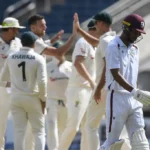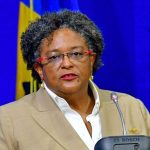Jamaica’s Prime Minister Andrew Holness on Monday encouraged the Caribbean as a collective group to petition the United States for more help to stem the flow of illegal guns into the region.
“We must consolidate our efforts to lobby, particularly the United States, to assist us; as we have assisted them in the war on drugs, they must assist us in the war on guns,” Holness said at the two-day Caribbean Community (Caricom) symposium on violence.
He said the present situation is “the greatest unfairness that we have diverted resources from other areas in which we could have spent it to fund and support a war on drugs …
“There seems to be no interest in stopping the other part of the trade, which are the guns. The guns fuel crime, they are an accelerant, they are needed to protect drugs that are transhipped to our borders. They are then turned to deal with other forms of criminal activity,” he said.
Holness said, in the case of Jamaica, the weapon of choice is no longer the Russian-made AK-47 but the AR-15 and the Glock, which are guns manufactured in North America.
“So, collectively, as the leaders of Caricom we must raise our voice on this. We must appeal to our friends in the north to increase their efforts to prevent the flow of guns into the region,” Holness said, adding, “We cannot negate our own responsibility in protecting our own ports of entry.
“We must also increase in a consummate way our own spending on securing our ports, airports, and our points of entry and increase our ability to detect the entry of illegal weapons, and we must also change our laws so that they align with the new and sophisticated crimes that are being committed and the flow of weapons into our country.”
Holness said the issue of crime and violence also has to be treated from a public health standpoint, noting that Jamaica has established a national commission on the prevention of crime.
“We feel in our country that the propensity to use violence and force to solve conflict is almost cultural. It has become a societal response and it is, therefore, not merely a policing problem, not merely a law and order problem, it’s about the social, emotional [ability] of our citizens to regulate themselves. It’s about the mental health of our society,” he said.










